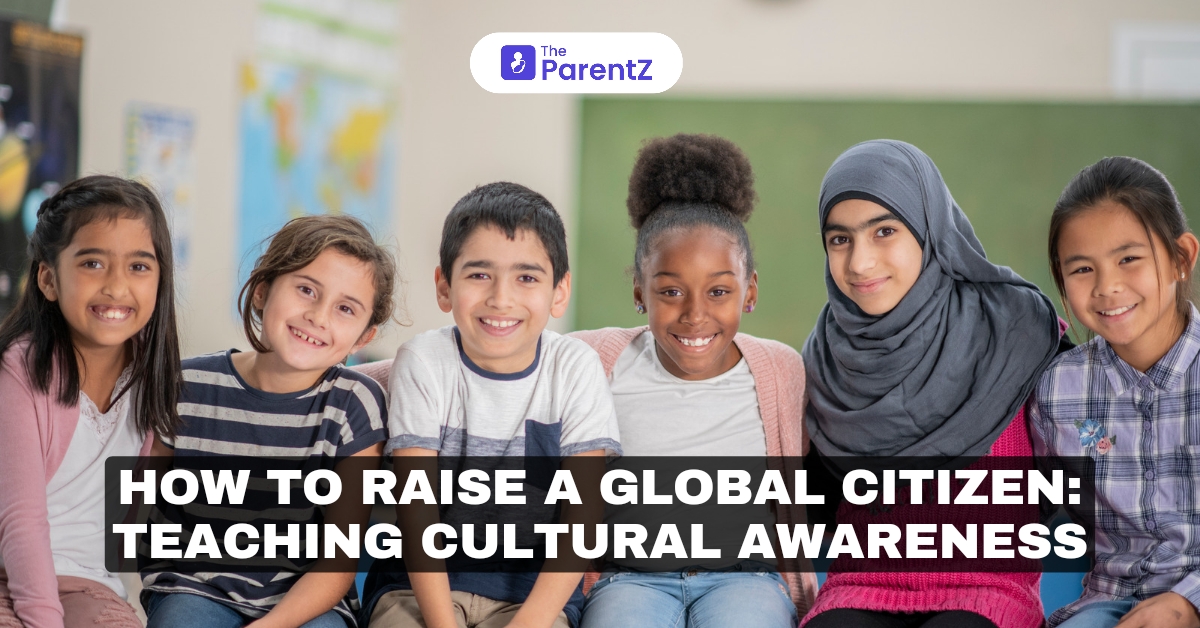In an increasinglyinterconnectedworld, raisingchildren whoare culturallyaware is essentialfor fosteringempathy, understanding, and cooperationamong diversepopulations. Thisarticle providespractical strategiesfor parents aimingto cultivateglobal citizenshipin their childrenthrough culturalawareness.
Understanding Global Citizenship
Global citizenshiprefers to recognizingoneself as partof a broadercommunity thattranscends nationalboundaries. Itinvolves understandingglobal issues, appreciatingcultural diversity, and taking actionto contributepositively tosociety.
The Importance of Cultural Awareness
- Empathy Development: Exposure to different cultures fosters empathy by allowing children to see the world from others' perspectives. Understanding diverse experiences helps combat stereotypes andprejudices.
- Enhanced Communication Skills: Culturally aware children develop better communication skills as they learn to navigate different social norms and practices effectively.
- Problem-Solving Abilities: Engaging with diverse viewpoints equipschildren with the skills needed to approach problems creatively andcollaboratively.
- Preparation for a Global Workforce: As globalization continues to shape economies, cultural awareness becomes crucial for success in diverse work environments.
Strategies for Teaching Cultural Awareness
- Expose Children to Diverse Cultures:
Exposing children to different cultures can be done through a variety of experiences. Parents can introduce their children to cultural festivals, music, art, food, and traditions from around the world. Visiting cultural centers, museums, or participating in multicultural events are excellent ways to give children firsthand exposure to the richness of global cultures. Additionally, books, documentaries, and online resources offer insights into the lives of people from different backgrounds. Through this exposure, children learn to appreciate diversity, seeing it as a natural part of life rather than something unfamiliar or intimidating.
2. Incorporate Multicultural Education at Home:
Parents can create a culturally enriched environment at home by incorporating multicultural education into daily routines. This might include reading books from authors of various cultural backgrounds, watching films that highlight global stories, or even cooking meals from different parts of the world. Introducing children to traditional clothing, crafts, and customs can further their understanding of different cultures. Parents can also explore the history and achievements of people from various cultures, emphasizing their contributions to global knowledge and society. This consistent and intentional approach helps children see the value in every culture.
3. Encourage Language Learning:
Learning a new language opens up the world to children in many ways. It not only allows them to communicate with people from other cultures but also helps them develop an appreciation for how language shapes thought and expression. Parents can encourage their children to learn a second language by enrolling them in language classes or using language learning apps and resources. Introducing children to multilingual environments, whether at home or in social settings, can also make language learning more engaging and practical. Bilingualism or multilingualism enhances cognitive development, cultural empathy, and opens up new social and professional opportunities.
4. Foster Open Dialogue About Differences:
Encouraging open discussions about cultural differences is crucial for fostering understanding and reducing biases. Parents should create a safe space where children feel comfortable asking questions about different cultures, traditions, and perspectives. This dialogue can take place naturally during day-to-day activities, like discussing the origins of a dish during dinner or reflecting on diverse characters in books and movies. It’s important for parents to model respect and curiosity when discussing cultural differences, emphasizing that diversity should be celebrated rather than feared. By normalizing conversations about differences, parents help children understand that varying viewpoints are valuable and enriching.
5. Volunteer Together:
Volunteering as a family is an excellent way to foster a sense of global responsibility and cultural awareness. By participating in community service or global outreach programs, children gain firsthand experience with people from different backgrounds and learn the importance of contributing positively to society. Volunteering opportunities could range from local projects, like helping in diverse communities, to supporting international causes that promote global development or humanitarian efforts. Through volunteering, children learn about empathy, the interconnectedness of global challenges, and the importance of giving back to the community, both locally and globally.
6. Model Global Citizenship Behaviors:
Children learn best through observation, so it’s essential that parents model the behaviors they wish to instill. Parents can demonstrate global citizenship by staying informed about world events, showing respect for different cultures, and taking action on social justice and environmental issues. Whether it’s through sustainable living practices, advocating for equality, or supporting global humanitarian causes, parents’ actions can inspire children to adopt a similar mindset. Parents should also model empathy and understanding when interacting with people from different backgrounds, showing their children that respect and compassion are fundamental to being a responsible global citizen.
Conclusion
Raising culturallyaware globalcitizens requiresintentional effortsfrom parentswho recognizethe importanceof empathy, understanding, and respectfor diversityin today's interconnectedworld. By exposingchildren to differentcultures throughtravel, education, dialogue, volunteerism—and modelingthese behaviorsthemselves—parents empowerfuture generationstowards becomingcompassionateglobal citizenscommitted tofostering positivechange withinsociety.





Be the first one to comment on this story.